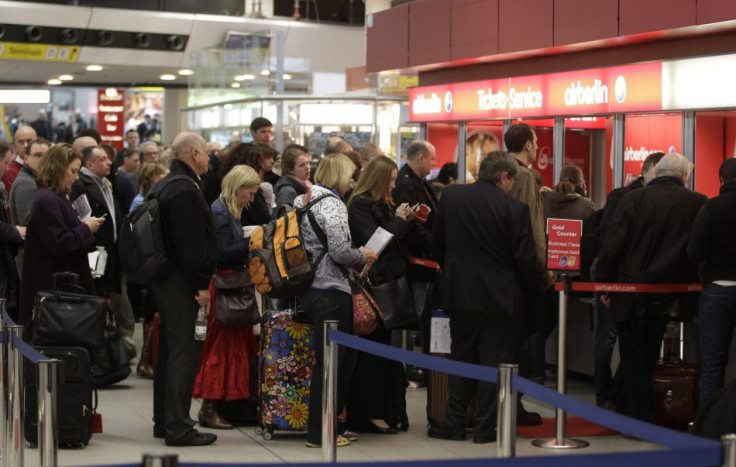Easter Getaway: Long Queues Feared at Airports Due to Staff Shortages

Britain's airports may be reduced to "gridlock" this weekend because there are not enough staff to carry out passport checks, airlines have warned Home Secretary Theresa May.
While the roads are expected to be busier than normal over the weekend, they are predicted to be quieter this Easter than last year due to rising fuel prices.
British Airways and Virgin Atlantic are among 11 airlines that have told May the UK Border Agency does not have enough staff to check the passports of everyone coming into Britain.
The Easter weekend is one of the busiest times of the year for airports. More than 1.5 million people are expected to travel abroad, with over 215,000 passengers expected to fly from Heathrow Airport on Saturday alone.
In a separate memo to the home affairs select committee, seen by the Daily Telegraph, Virgin Atlantic warned that the lack of staff at passport control will result in long queues, leading to "a very real chance of gridlock at UK airports".
The Virgin Atlantic memo said: "If arriving passengers are unable to proceed efficiently through the UK border, then the entire airport operation will be at risk. Passengers arriving late from passport control to collect their luggage will cause congestion in the baggage hall, delaying delivery of luggage from later flights.
"If there is no space in the immigration hall for any more arrivals, then airlines will be forced to keep passengers on board the aircraft, thus jeopardising the operation of subsequent flights. This, in turn, will delay departing passengers and cause over-crowding in departure areas as a result."
A Border Force spokesperson said: "We will not compromise border security, but we always aim to keep disruption to a minimum by using our staff flexibly to meet demand.
"Carrying out full checks at airports help us stop threats from terrorists, criminals and others who want to harm the UK and make sure that only those with the right to enter the UK can do so.
"The Border Force is prepared for the busy Easter period and has ensured extra staff will be working at the border to carry out vital security checks."
Roads
While chaos is expected at the airports, roads and motorways are predicted to be less busy than last year, according to traffic information specialist Trafficmaster.
Schools breaking up last Friday, unsettled weather predictions and the fact there is not a royal wedding following the Easter weekend are all factors which may contribute to fewer drivers on the road this year.
The Highway Agency predicted that Maundy Thursday will be the busiest day on the roads, as getaway traffic combines with commuter traffic.
An increase in fuel prices following last week's panic buying across the UK is also predicted to put people off travelling by car this Easter.
The price of fuel reached highs of 174.4p per litre of petrol and 177.9p per litre of diesel in some areas, as garages attempt to profit from panic buying.
AA patrolman Keith Miller said: "After a chaotic week, fuel supplies to forecourts are returning to near normal levels, so drivers should have no concerns about heading off for Easter.
"People should just refuel as normal, keeping at least a quarter of a tank in your car in case of traffic delays or if you're travelling in an unfamiliar area."
Trains
More than seven million passengers are expected to travel by rail over the Easter bank holiday weekend. They have been assured there will be fewer instances of rail replacement services and engineering work.
Michael Roberts, chief executive of the Association of Train Operating Companies (Atoc) said: "We're expecting millions of people to travel by train as they head off on days out around the country to see friends and family.
"On the small number of routes affected by improvement works, a great deal of planning goes into making sure that we keep passengers on trains as much as possible."
Figures from Atoc and Network Rail show that the number of replacement buses has dropped by over a third compared to last Easter.
© Copyright IBTimes 2025. All rights reserved.




















